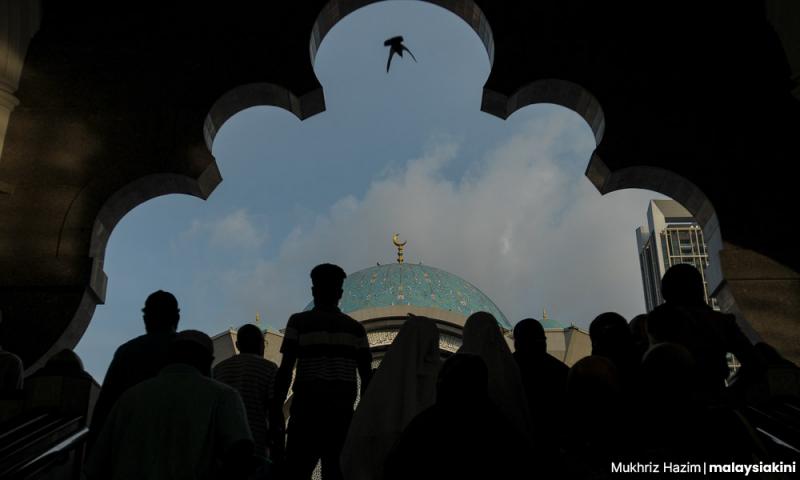LETTER | The journey of a year in reflection
LETTER | The Muslim calendar offers believers numerous opportunities to embark on a journey of self-development throughout the year, with several significant stations for reflection.
The journey commences with the month of Muharram, during which Muslims contemplate the sacrifices made by Prophet Muhammad (peace be upon him) and his Companions who left their hometown for Yathrib (later known as Madinah).
Those who migrated were known as muhajirun, and they were welcomed by the Muslims in Yathrib, called Ansar (the helpers). The Ansar demonstrated exemplary hospitality towards their guests, recognising the challenges faced by the muhajirun who had to start afresh in terms of livelihood and settling down.
Moreover, it is important to acknowledge that not all residents of Yathrib initially embraced their arrival. Although the psychological burden was immense, the Ansar’s hospitality alleviated the process.
The next station for reflection in the Muslim calendar is the birth of Prophet Muhammad (pbuh) in Rabi’ al-Awwal. It is a moment to contemplate his compassion and love for his people, extending even to those he had never met: “There certainly has come to you a messenger from among yourselves. He is concerned by your suffering, anxious for your well-being, and gracious and merciful to the believers.” (al-Tawbah, 128)
Spiritual reward
Following this, the calendar encompasses three significant months: Rajab, Sha’ban, and Ramadan.
The Prophet (pbuh) experienced a symbolic journey of spiritual reward during the night of Isra’ and Mi’raj in Rajab. This journey served as a testament to the rewards that await after enduring profound suffering.
Prophet Muhammad (pbuh) faced numerous challenges throughout his life, such as the loss of two beloved individuals, the rejection of his call to Islam by the residents of Taif, and the physical, psychological, and economic hardships he endured. Through it all, he remained steadfast in his commitment as a true Prophet, never seeking revenge or succumbing to cowardice, but instead demonstrating mercy and genuine concern. Undoubtedly, he deserved the ecstatic spiritual reward that followed.
Sha’ban serves as a preparatory phase for Ramadan, a time to engage in deep reflection on one’s soul and evaluate the accumulation of good and bad deeds over the past year. Ramadan itself is a month of forgiveness and repentance, marked by increased meditation and prayer.
Month of purification
Fasting is a central aspect of Ramadan, as it allows us to experience hunger and restrain our worldly preoccupations, enabling us to focus on our basic biological needs. It prompts us to question whether we have devoted excessive time to food.
Contrary to certain perceptions in certain contexts of the Muslim world, Shawwal is not a month of indulgence and desire. Rather, it is a month of expressing gratitude for the purity attained during the preceding month of purification.
In the month of fasting, the soul was cleansed of greed, obsession, and cravings. Shawwal is a time for giving and repairing broken relationships. It encourages reaching out to others and fulfilling social needs.
Lastly, the month of Dhul Hijjah holds the promise of great rewards, particularly during its early 10 days. Fasting, prayers, and remembrance of Allah - every act will be abundantly rewarded, as Allah has promised. During these 10 days, we reflect once again on our annual achievements and evaluate our key performance indices.
We contemplate whether we have adequately addressed our spiritual, social, psychological, and biological needs, seeking balance and fairness in providing the necessary nourishment. Perhaps we have contributed more to the community than we have taken.
Additionally, Eid al-Adha serves as a moment for reflection, too. We question our intentions behind animal sacrifices: Are we merely seeking to be perceived as benevolent in society’s eyes? Do we make the effort to personally deliver the meat to the poor and needy, demonstrating humility? Or do we slaughter solely to satisfy our own appetites and those of our family members?
ALWANI GHAZALI is a senior lecturer at the Department of Aqidah and Islamic Thought, Academy of Islamic Studies, Universiti Malaya.
The views expressed here are those of the author/contributor and do not necessarily represent the views of Malaysiakini.
RM12.50 / month
- Unlimited access to award-winning journalism
- Comment and share your opinions on all our articles
- Gift interesting stories to your friends
- Tax deductable
